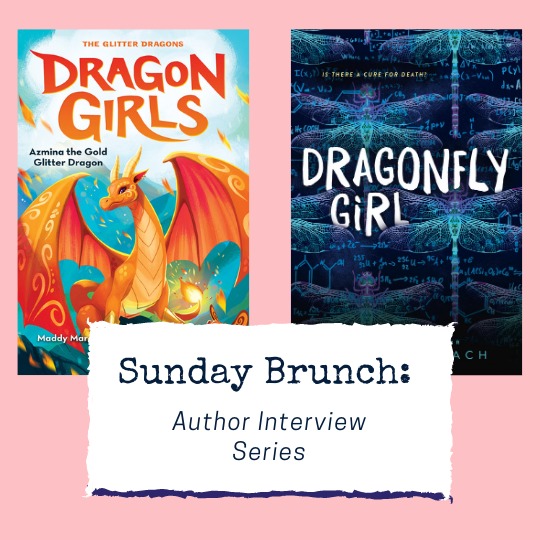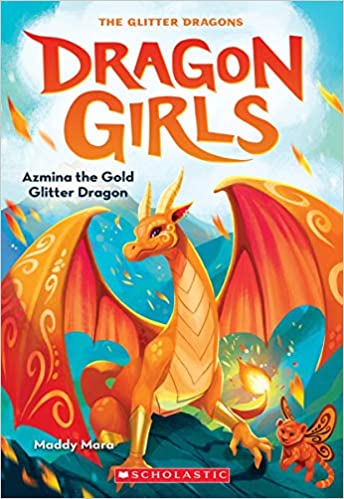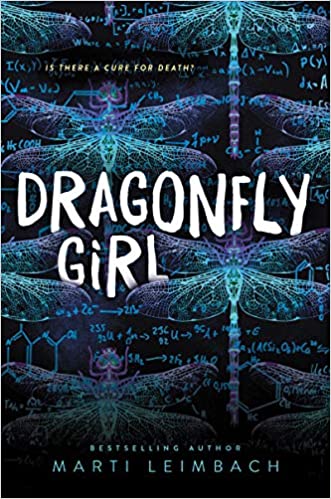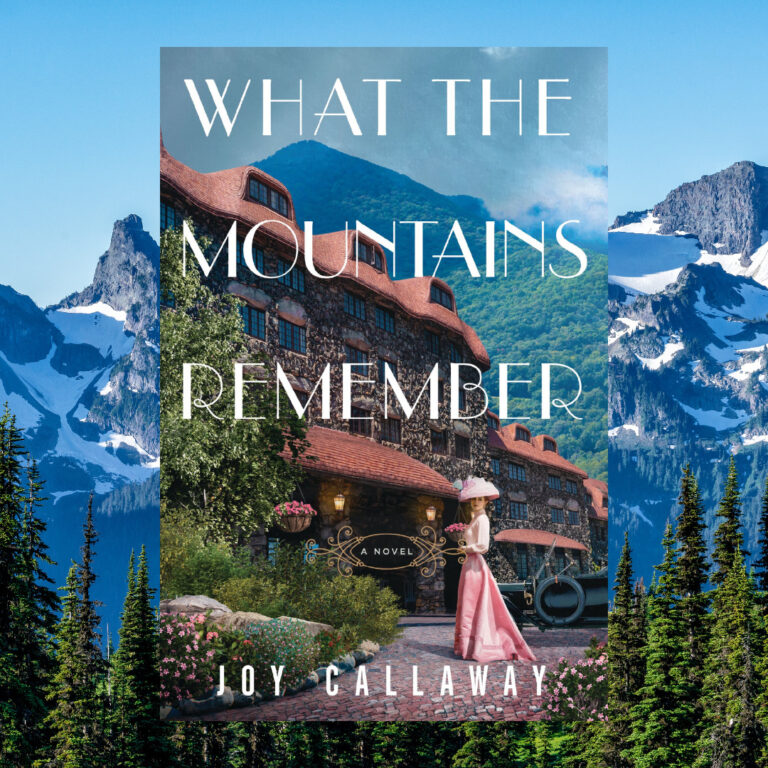[Note from Frolic: Our resident YA expert Aurora got the chance to chat with authors Maddy Mara and Marti Leimbach and ask them all about their latest books. Up first, Maddy Mara!]
Aurora: What was your inspiration behind Dragon Girls?
HR: We wanted to create a series full of adventure and magic, that also sent the right messages to young readers about solving their own problems and forming positive and lasting friendships. And we wanted the series to work for American and Australian kids – as well as readers all around the world. That’s much easier said than done!
MB: Hilary and I knew we wanted to create a fantasy series for girls and Hil had the idea of setting it in a magical forest which was inhabited by human-animal hybrids. It was my teenage daughter, Madeleine, who suggested that they be half dragons. Both Hil and I instantly saw the possibilities with this. Dragons can fly, they are gorgeous, they are deeply involved with magic and so in some ways they are like fairies. But dragons have the edge over fairies because they are physically powerful, loud and tough. If you try to mess with a dragon girl, she is going to blast you with her roar! We believe dragons are the fairies of today.
Please describe the content of Dragon Girls and what can readers expect from the series.
HR: In each book, a girl steps from the ‘real’ world into the Magic Forest, an extraordinary and beautiful place where all sorts of strange, wonderful creatures and plants thrive. In the forest, our girl discovers something thrilling: she is a Dragon Girl. The enemies of the forest are The Shadow Sprites, who are mischievous and invariably up to no good. It’s up to the Dragon Girls to save the forest. We’ve tried to keep the language simple to ensure the books are accessible for newly confident readers but still richly imaginative for stronger readers.
MB: You can expect acrobatic flying, lots of excitement, magical roaring, and cheeky Shadow Sprites intent on taking over the forest. Through this action we follow a group of powerful, relatable girl characters who solve their own problems, do not need rescuing, and who support and celebrate each other. As an added bonus, you might get erupting volcanoes, underground vaults filled with treasure, flying dolphins, bird-unicorns, glow-bees (who have a democratically elected president, NOT a queen) or a sea-donkey dad who tells terrible dad jokes on his way to school pick-up.
Why do you feel chapter books with powerful and unique themes are so popular and have such a voice right now?
HR: Kids are like sponges, soaking up the messages in the stories and world around them. This is why the historical lack of strong female characters and diverse protagonists in books (and on screens) has been such a problem. Kids need to see characters they can relate to, having agency and solving their own problems. We took the idea of finding your voice to the extreme in Dragon Girls – they find their roar, literally!
MB: There is a lot of competition for kids’ attentions these days – a chapter book doesn’t only have to compete with a plethora of other chapter books but it also has to compete with YouTube, Minecraft and a hundred other online distractions. This is why it’s so heartening to see that many kids still get so many important things from books, things that nothing else can provide. Books that deal with difficult or unique themes offer kids a chance to imagine tough situations and to see possible ways of navigating through them. The relationship a child develops with a book that really resonates with them can’t be replicated by any other medium.
What’s next for you both in the bookish world?
MB: We are in the early stages of talking to Scholastic about a new fantasy series, this time for boys. We love this part of the process, when we get to chat endlessly about all the possibilities.
HR: We’ve also just written a rhyming picture book called The Greatest Mistakes that Went Right. This will be published in Australia later this year. The book explores how making mistakes is a natural part of life – and that our errors can lead to new discoveries. We use examples of mistakes (or happy accidents) that have led to fun inventions or important discoveries. We don’t want kids to fear messing up. It’s part of life and can lead to wonderful things. We’re hopeful this book will be available in the US soon, too!
Who are your current favorite writers? Why?
MB: My two favorite adult books from last year were Girl, Woman, Other by Bernardine Evaristo because Evaristo writes so authentically about female characters and the complicated relationships between them and All of Me by David Sedaris because I don’t know how Sedaris is able to make me bend over with laughter one moment and then gasp with shock the next.
Although I am Australian, I am currently living in Germany and I teach ESL as well as writing. Last year I introduced my young kids to some Australian authors, including Billie B Brown by Sally Rippin. Sally is masterful at writing deceptively simple stories that are full of fun and relatable situations.
HR: Ferrante is one of my all-time favorite authors. Reading her latest, The Lying Life of Adults, I get to feel like I’m in Italy while reading. Actually, during lockdown (we had a severe lockdown here in Melbourne, lasting many long months), I read a lot of fiction from other cultures, including lots of surreal Japanese and Korean fiction, such as Earthlings (Sayaka Murata), The Vegetarian (Han Kang), and There’s no such thing as an easy job (Kikuko Tsumura). I also loved Too Much Lip by Australian first nation’s author Melissa Lucashenko.
Any writing advice for aspiring writers?
MB: A wise writing teacher of mine once suggested gathering up all the unfinished stories and early drafts of things you have lying around, putting them in a shoebox and letting them sit for a while. Then, when you’re ready, open the box up, spread everything out and see if you can see new connections and relationships between the various pieces. I’ve done this and it’s always interesting to see old ideas in new ways.
HR: When you’re writing, try not to edit or judge your work as you go along. Just allow yourself to write, and be sure to imagine it’s fabulous. Because it might be! Then give your work a bit of time, ideally a week, before you put on your judging cap and see if what you’ve written is actually any good. If you’re judging yourself as you write, you may never get anywhere …
Up next, Marti Leimbach!
Aurora: What was your inspiration behind Dragonfly Girl?
Marti Leimbach: It was Kira, the main character of Dragonfly Girl. She arrived on the page and it was like being introduced to a person I’d always known, yet didn’t know at all. I wanted to spend time figuring out who she was, what was going on in her life, and how she was going to deal with the incredible advantages and profound disadvantages of her life.
What character do you most relate to and why?
Again, Kira. She’s an unusual kid, terribly gifted in some ways and miserably deficient in others. She’s teased and tormented at school, but she doesn’t even dwell on that. She’s used to a punishing school life and her bigger problems are very big: her mother’s health and the resulting financial stress that threatens her future.
This was me as a high school kid. Like Kira, I lived with a single parent who was ill. There wasn’t enough money to fix things around the house. It was embarrassing…I wouldn’t let anyone through the front door because I didn’t want them to see. And there were all these…what would you call them? They felt like predators. People calling up to threaten us about unpaid bills, or arriving at the door. It got worse and worse. We lost the house, all the while I was supposed to be preparing for…what? Pop quizzes? It was crazy. But I knew one thing. I knew if I was going to have any chance in life I had to take opportunities and take risks. Kira does all this and much more.
Why do you feel novels with powerful and unique characters are so popular and have such a voice right now?
I think we are all hungry for authenticity. While I love social media and the connectedness it brings, I agree with the critics that our lives are sometimes portrayed in a curated, wishful manner that doesn’t ring true. Reading a novel in which the author has invested a big part of their real selves, their authentic lives, is a gift these days.
Please describe the content of Dragonfly Girl and what can readers expect from it.
Dragonfly Girl is about a 17-year old high school senior with a gift for science but big problems at home. Her mother is sick; they are buried in debt, and she has no hope of going to college. Things look grim until a lucky break means she gets an afternoon job at a prestigious laboratory. There, she discovers a “cure” for death. For the first time, things are working out. She goes from being a nobody, bullied at school, to being celebrated for her abilities. The boy she has a crush on even turns his attention to her. But this sudden success crashes down hard. It turns out that science has a dark side and the consequences of Kira’s success put her life in danger.
What’s next for you in the bookish world?
I’ve just completed the first draft of the sequel to Dragonfly Girl, a novel called Academy One.
Who is your current favorite writer? Why?
I have whole lists of favorite writers and I love them for different reasons.
I love Mary Robison because the place from which she writes is uniquely her own and nobody can imitate her, though they try. If I want to get pumped up I read her or Ralph Lombreglia, whose energy on the page is transformative.
I’m a huge fan of Suzanne Collins, in part because The Hunger Games is so beautifully conceived and flawlessly structured, but also because there are all sorts of classical influences that have been brought into a contemporary and eternally youthful story. I became newly in awe of her after writing the sequel to Dragonfly Girl because Collins’s crafting of sequels is superb and I spent time studying exactly how she did it.
I’m a lifelong fan of Tayari Jones who arrived on the scene with Leaving Atlanta and continues to gift the world with her work, the latest of course being An American Marriage.
Any writing advice for aspiring writers?
Focus on what is under your control – writing well and consistently.
Celebrate small wins and let go of all losses.
Make friends with other writers; most of us want to help you.
Don’t worry too much: your readers will find you.
You will need luck. But luck comes in different forms, like fables of frogs that turn into princes. It’s not always obvious what is a “lucky break”.
Remember this: There is always another book inside you. There is always another day.














